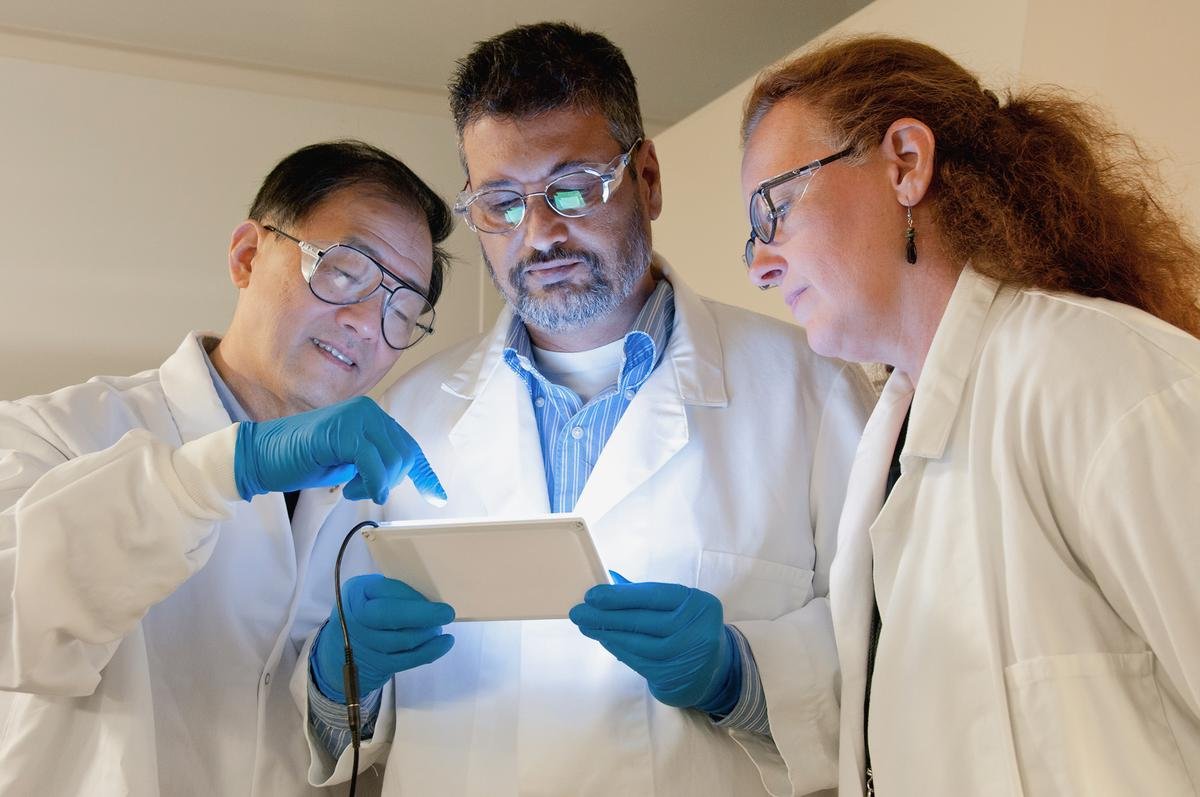
In a world brimming with scientific advancements protecting our health, the significance ASD (Autism Spectrum Disorder) and vaccinations cannot be overstressed. This discourse provides a vital exploration into Autism, a neurodiverse condition that affects millions globally, often identified during early childhood by particular signs and symptoms. Equally important is our understanding of vaccinations, a compelling guardian of children’s health, serving as a significant shield against numerous diseases. Perhaps, most critical of all, we delve into the widespread but contentious debate linking Autism to vaccines, an idea originally kindled by a controversial study in 1998 and has since spiraled into a realm of fear and misinformation. Our investigation continues with a presentation of robust scientific evidence debunking the Autism-Vaccines theory, emphatically emphasizing the crucial role of vaccines. Finally, we aid in facilitating effective communication with pediatricians concerning this topic, paving the way for open dialogue and informed decision making
What is Autism Spectrum Disorder?
Unlocking Autism: What Every Parent Needs to Know
With children each day bringing a new opportunity for discovery, there’s one truth every parent can relate to: We never stop learning. Parenting presents endless challenges and rewards, and when it’s about raising a child on the autism spectrum, the journey can be a beautiful mixture of both. So, what does every parent need to know about autism? Let’s dive in.
Autism is a developmental disorder manifested through a variety of behavioral and social interaction challenges. Often misconstrued with myths and misunderstood facts, autism is neither a disease nor a condition to ‘grow out of’. Autism is simply a different way of experiencing the world.
Early Diagnosis Can Lead to Early Intervention: While autism signs can be detected as early as six months, most children are diagnosed between two and three years old. Early diagnosis can be tremendously beneficial as it paves the way for early intervention. This means parents can start using therapies that help the child develop critical communication and social skills.
There Is A Wide Spectrum: Autism is a broad spectrum that encompasses everything from mildly affected individuals who can lead independent lives, all the way to those who might require consistent assistance. The saying, “If you’ve met one person with autism, you’ve met one person with autism” best describes the diversity in behavioral patterns among autistic individuals.
Inherent Strengths Are Present: While challenges exist, it’s crucial to remember that many people on the autism spectrum have inherent strengths. Some individuals may have remarkable memory recall, others may excel in music, art, or mathematics. Recognizing and nurturing these strengths can help an autistic child succeed.
It’s Okay To Seek Support: Looking after an autistic child can sometimes feel overwhelming, but remember, it’s okay to ask for help. Every parent needs a break now and then. Reach out to local autism support groups, therapists, relatives, and friends willing to lend a hand or offer a listening ear.
Everyone Learns Differently: Finally, all parents must remember that each child – autistic or not – is unique in the ways they learn and perceive the world. Patience, flexibility, and ingenuity in discovering new and effective teaching methods often yield remarkable results.
While this may feel like a lot of information to absorb, remember that this journey, like any other in parenting, is a staircase and not a steep hill. Take one step at a time, always holding on to the love you have for your child as the handrail. So, sit back, take a deep breath and trust that like many other parents, you too will find the rhythm that best suits your child and family.
And remember, parenting is a journey – so relish every up and down it throws your way, because these are the moments shaping a truly unique story for each family.

Understanding Vaccines and their Importance
The Vital Role of Vaccines in Your Child’s Health
Without a doubt, parenting is a journey filled with numerous decisions, all of which aim at ensuring the well-being and overall health of our children. Among these decisions is the choice to vaccinate. Given the prominence of various viewpoints on the matter, it’s absolutely crucial to understand why vaccines are important and how they play a key role in your child’s health.
The Importance of Vaccines
Vaccines play a pivotal role in your child’s wellbeing by boosting their immune system, helping it fight off serious diseases that could otherwise be fatal or debilitating. These vaccines use a weakened or inactive part of a pathogen, which is the microorganism causing the disease, to stimulate the body’s immune response. This stimulation aids your child’s body in recognizing and combating the disease faster should they ever come into contact with it again.
Vaccines and Children’s Health
Children, particularly infants and toddlers, have immune systems that are still developing, making them more susceptible to infections and illnesses. Vaccines step in as a guarding shield, protecting your child from diseases such as measles, polio, whooping cough, chickenpox, and more. These preventable diseases, if contracted, can lead to severe complications such as lung infections, brain damage, cancer, or even death. Vaccines work by giving your child’s immune system a “preview” of these diseases so it can learn to defend against them effectively.
The Herd Immunity Effect
Another significant aspect of vaccination is the concept of herd immunity. By vaccinating your child, not only are you protecting them, but you’re also contributing to the health of the community. This is because when a significant portion of a community is vaccinated, the spread of infectious diseases decreases dramatically, safeguarding even those who can’t be vaccinated due to certain medical conditions, like allergies or a weakened immune system.
The Myth About Vaccines and Autism
With the array of information available to us today, it’s easy to fall prey to unverified or misleading health claims. One of the most prevalent myths is that vaccines are linked to autism. This theory, despite being widely circulated, has been scientifically debunked time and again. Major health organizations, including the World Health Organization and the Centers for Disease Control And Prevention, stress that no reliable studies exist indicating a link between vaccines and autism. It’s crucial to trust credible and verified sources when it comes to decisions about your child’s health.
Conclusion
In our everyday journey as parents, our primary goal remains the same- to keep our child safe and healthy. Vaccines play an invaluable role in that journey, offering protection against severe diseases, bolstering their developing immune system, and contributing to the overall health of the community. Misinformation can often cloud our judgment, but adhering to credible sources and seeking advice from health professionals helps ensure we are making informed decisions. After all, every step we take, every decision we make, is a testament to our boundless love for our children.

The Origin of the Autism-Vaccines Controversy
Knowing the importance of vaccines and seeing firsthand the power they have to save lives, it’s understandable how the myth of vaccines causing autism can create anxiety among parents. It is fundamental to clarify that medical research reaffirms that there is no link between vaccines and autism. So, how did this misunderstanding come about?
In the late 1990s, a controversial paper emerged suggesting the Measles-Mumps-Rubella (MMR) vaccine could be linked to autism. This sole study, later retracted due to serious ethical violations and procedural missteps, nonetheless sparked a widespread debate that echoes until today. Misinformation can spread like wildfire, especially when it concerns our children’s health.
The initial paper was based on a small sample size of just 12 children, as compared to the vast spectrum of children getting vaccinated worldwide. In the years following its publication, numerous larger and more rigorous studies examined the alleged link between vaccines and autism. These studies, in contrast, did not find any association between receiving the MMR vaccine and developing autism.
This unfortunate saga highlights the importance of discerning the credibility of information sources. In our era of quick news and plentiful information, anyone can broadcast an opinion, but not every opinion is based on robust, scientific evidence. Hence, trusting authoritative health bodies and professional healthcare providers is critical.
When our little ones are concerned, it’s natural that we want to make the best decisions. We all want to protect them from harm, and that includes safeguarding them from preventable diseases, which is what vaccines do. When thinking about vaccines, it’s essential to remember their purpose: to strengthen our kids’ immune systems and to protect our communities through herd immunity.
Despite the myth-busting research conducted over the past decades, the echo of the original false claim continues to resonate with some parents. This ongoing concern is a testament to the strength of rumors and misinformation in our society.
It’s important to acknowledge that autism, like every aspect of our children, makes them unique. It’s part of what shapes their individual personalities, learning styles, and ways of interacting with the world. Our task as parents, then, is to cultivate their strengths, support their growth, and provide the best possible environment for them to thrive in.
Thus, the true focus should shift from fear and misinformation to understanding and acceptance. Let’s keep our children safe through informed decisions about vaccines and continued love and support in whatever makes them uniquely them. Remember, each child is their own unique self, providing a remarkable perspective on our beautiful world, whether they’re living on the autism spectrum or not.

Scientific Evidence Debunking the Autism-Vaccines Theory
Ever on our minds as parents dedicated to our children’s wellbeing, is the need to make responsible decisions regarding their health. An area that has been the center of lots of debates and misinformation is the connection between vaccines and autism. With the scientific world, media and public opinion sometimes sending mixed messages, it’s essential to understand the cold, hard facts.
In the late 1990s, the world was abuzz with a paper published in The Lancet which suggested a link between the MMR (measles, mumps, and rubella) vaccine and the onset of autism. However, it’s important to note that this controversial paper was based on data from only 12 children, too small a sample size to draw reliable conclusions. Ultimately, the paper was retracted due to ethical violations and numerous procedural missteps in the study.
Subsequent larger, more rigorously conducted studies by reputable researchers globally, with thousands of participants, consistently found no connection between the MMR vaccine or other vaccines and a heightened risk of autism. Bodies such as the World Health Organization, Centers for Disease Control and Prevention, and the Institute of Medicine all echo this finding – there’s no credible scientific evidence linking vaccines to autism.
However, despite the overwhelming consensus in the scientific community, the unfounded rumor still circulates among some circles, which is a significant concern. This persistence of misinformation can be attributed to the strength of rumors and biases, fueled by the multiplication effect of social media. It’s heartbreaking to witness the spread of fear and doubt among loving parents simply trying to make the best decisions for their little ones.
So, what does all this mean for us as parents? Clear, evidence-based knowledge empowers us to make informed healthcare decisions for our children and communities. Remember, credible health information comes from authoritative health bodies and healthcare providers — not unverified sources focused more on sensationalism than facts.
Vaccines play a crucial role in safeguarding against preventable diseases, providing herd immunity, and generally keeping our children healthy. The very foundation of vaccines is to strengthen not weaken the immune system.
Finally, let us not forget the larger picture. As parents, we aim to foster an environment that promotes understanding and acceptance of all children, including those on the autism spectrum. Autism is a spectrum disorder, meaning its manifestation varies widely from child to child.
Each child with autism has unique strengths and abilities that need to be nurtured and celebrated. Let’s focus on supporting our children’s growth and enabling them to reach their potential, instilling confidence and acceptance from the earliest stages. Whether neurotypical or autistic, every child deserves love, support, understanding, and opportunities to thrive.
When we equip ourselves with the truth, we can invest our energy where it truly matters – raising our children with love, acceptance, and the informed decisions that support their wellbeing. Vaccination is just one aspect of that equation, an important tool in safeguarding their health. So dear parents, let’s prioritize fact over fear, and continue doing what we do best – loving and caring for our children.

Talking to Your Pediatrician about Autism and Vaccines
Gradually Shifting the Dialogue toward Insight over Anxiety
Having covered the wide spectrum of autism, the debunked myth connecting vaccines to autism, and the importance of discerning between reliable and unreliable sources, it’s time to delve deeper and explore how we can sustain a healthy conversation about this controversial topic with our child’s healthcare provider.
As parents, we should prioritize informed questions over anxious apprehensions when discussing vaccines with our child’s doctor. Recognizing vaccines as vital protectors against dangerous diseases such as measles, polio, whooping cough, and chickenpox, is the first step in doing so. Leaning on authoritative health institutions and validated studies can bolster this understanding, enabling us to state our concerns with our child’s physician articulately and confidently.
Our initial dialogue should convey our understanding of the importance of vaccines in boosting immunity and the concept of herd immunity. This will allow the discussion to move away from speculative fears and toward sound, clinically backed facts that promote the overarching theme of a child’s safety.
Despite ample evidence that refutes the correlation between vaccines and autism, some parents may still harbor underlying fears due to the misinformation circulating. As loving parents, we undoubtedly want our children to be safe and healthy. Therefore, honest conversations with child health professionals are fundamental. They can offer valuable insights, debunk myths, and provide the assurance and guidance needed to make informed decisions.
Once we’ve laid out these points, we can address the controversy head-on, acknowledging the retracted study that initially alleged a connection between the MMR vaccine and autism. Despite the anxiety-inducing rumours, larger studies have consistently disproven this correlation, helping to restore faith in a vaccine’s purpose – to shield, not harm.
During these discussions, it’s crucial to establish a trust-based relationship with your child’s healthcare provider. This trust, combined with verified resources like the Centers for Disease Control and Prevention (CDC) and the World Health Organization (WHO), can dispel the pernicious power of rumours that often cloud the vaccine conversation.
The autism-vaccine controversy has evolved into a double-edged sword that fuels fear and cultivates confusion. But let’s not forget, families are strong and resilient, especially when armed with knowledge and understanding. Rather than dwelling on unfounded fears, let’s highlight autism’s unique attributes and the potential for growth and love in every child, regardless of their individual abilities.
Balancing love for our children with the responsibility of making the right health decisions can certainly feel like a daunting task. But, equipped with understanding, acceptance, and trust in reliable sources, we have the ability to make informed decisions that prioritize our children’s welfare, choosing insight over fear.
Remember, no two autism journeys are the same, just as no two children are alike. It’s a diverse spectrum, speckled with individual strengths wherein lies our focus. Alongside healthcare professionals, we can shift the narrative from controversy to conversation and from fear to understanding, empowering our children and ourselves in this intricate, rewarding parenting journey.
Understanding ASD and the role of vaccines in children’s health is a responsibility we all share, especially in nudging the narrative in the right direction. Recognizing the signs and implications of Autism fosters acceptance and adaptation for those on the spectrum. The enduring controversy that links vaccines to Autism, though instigated by unfounded fears, has found a formidable adversary in the form of numerous scientific researches indicating otherwise. At the heart of this disproval is an unwavering endorsement from health experts worldwide regarding the indispensability of vaccines. Moreover, equipping oneself with the proper knowledge makes it easier to discuss and address one’s concerns with healthcare providers. Amidst the storms of misconception, let us persist in seeking truths, amplifying facts, and ultimately ensuring the safety and well-being of our children, putting their health above all.





